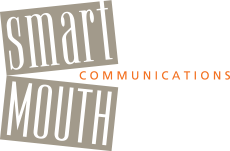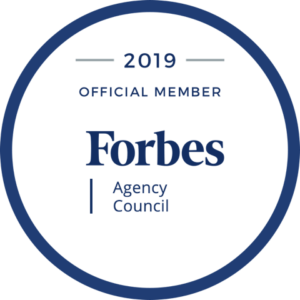I want to share a personal story that’s not entirely flattering. In fact, the episode was a little bit jolting at the time, but soon thereafter it reaffirmed two important aspects of my coaching and training philosophy:
When it comes to audiences, always connect with them and always learn from them.
So, here’s the story …
A few years back, I was invited to be the guest speaker at an open house for a Toastmasters chapter. It wasn’t a regular Toastmasters meeting, it was a membership cultivation event. I was asked to speak on the importance of having a big idea and how to identify and articulate one.
I’m a fan of Toastmasters and, in fact, recommend it to clients who need lots of practice speaking, usually to desensitize them to the fear of public speaking. The event was quite interesting, it drew a very diverse crowd of people, and the Toastmasters members and leaders were very welcoming. I gave my talk, which I had prepared ahead of time (I always prepare ahead!), I kept it brief (I always try to be brief!), and there was a robust Q&A.
 When I was done, I got great feedback and lots of thank you’s from the audience. However, on my way out the door at the end of the event, one of the chapter leaders approached me with his clipboard. Apparently, he had been scoring me while I was speaking, and it turns out I didn’t do so well by Toastmasters’s standards. He had counted um’s and ah’s (thankfully there weren’t too many), and he had timed, measured, and scrutinized me for public speaking metrics that weren’t on my radar screen.
When I was done, I got great feedback and lots of thank you’s from the audience. However, on my way out the door at the end of the event, one of the chapter leaders approached me with his clipboard. Apparently, he had been scoring me while I was speaking, and it turns out I didn’t do so well by Toastmasters’s standards. He had counted um’s and ah’s (thankfully there weren’t too many), and he had timed, measured, and scrutinized me for public speaking metrics that weren’t on my radar screen.
Admittedly, I went in unfamiliar with the methodology of Toastmasters. Still, my initial reaction to the sudden appearance of the clipboard felt like a breach of hospitality – that without any forewarning, an invited guest would be scored and critiqued? I was taken aback, and my ego was bruised. I recovered quickly, though, and my reflection on the experience reaffirmed two things for me:
First, with all due respect to Toastmasters, being an effective speaker is less about precision and more about being real and connecting with people. In my practical experience, being real and accessible goes a lot farther than pitch perfect delivery. Audiences are pretty forgiving and they’re also hungry to be let in, to feel like they know and can identify with the speaker – warts and all.
Second, that we can always learn from our audiences and, in reality, we always do. Every interaction with a client and every speaking engagement informs and sharpens my approach. I always say that my clients are my greatest teachers. The trick is to look for those lessons, be open to them and consciously make a note-to-self about what you plan to do differently or better next time.
To this day, I encourage clients to try Toastmasters – for nerves, um’s and ah’s, and just for muscle practice. It’s all good. Nonetheless, there’s a good case for authenticity over accuracy, and there’s also a good case for letting others teach you, even when it’s unexpected or uncomfortable.
- New Agey Advice for Nervousness - November 3, 2022
- Your Passion Can Go a Long Way Toward Building Connection - October 10, 2022
- Keep stage fright a private matter while you’re speaking on a public stage! - August 11, 2022



